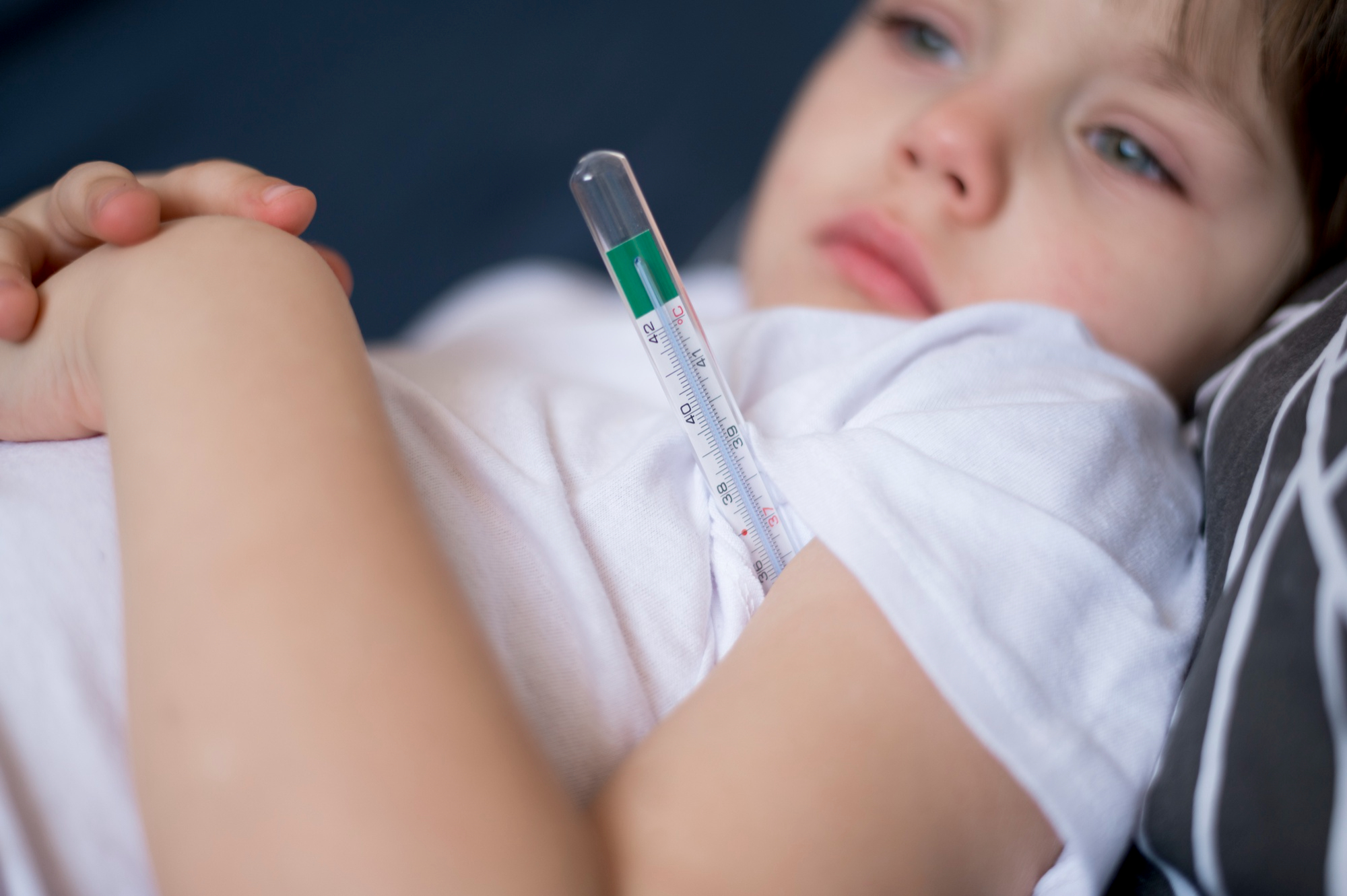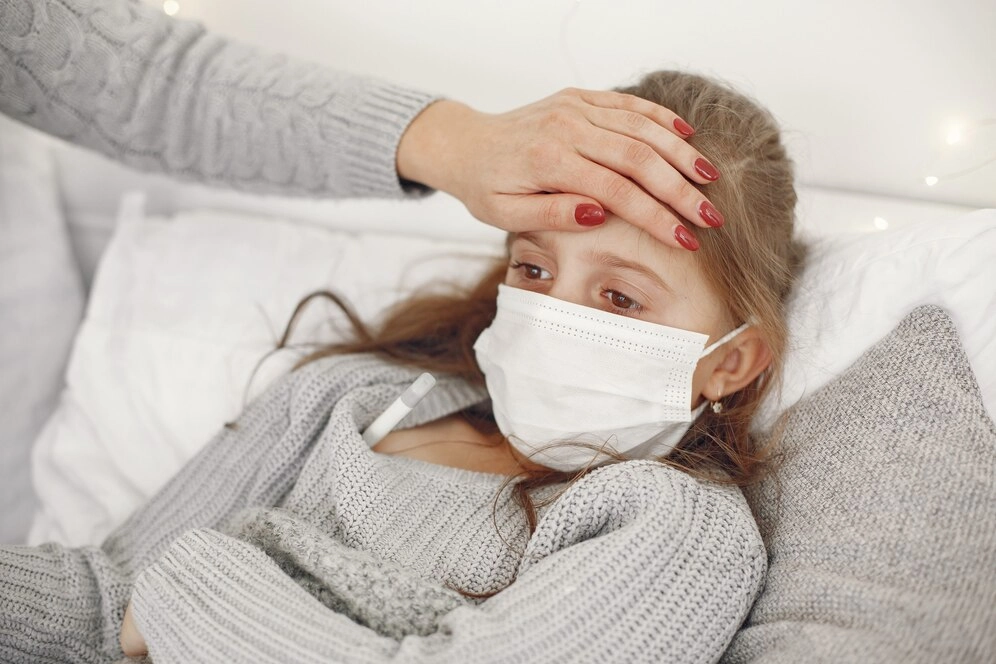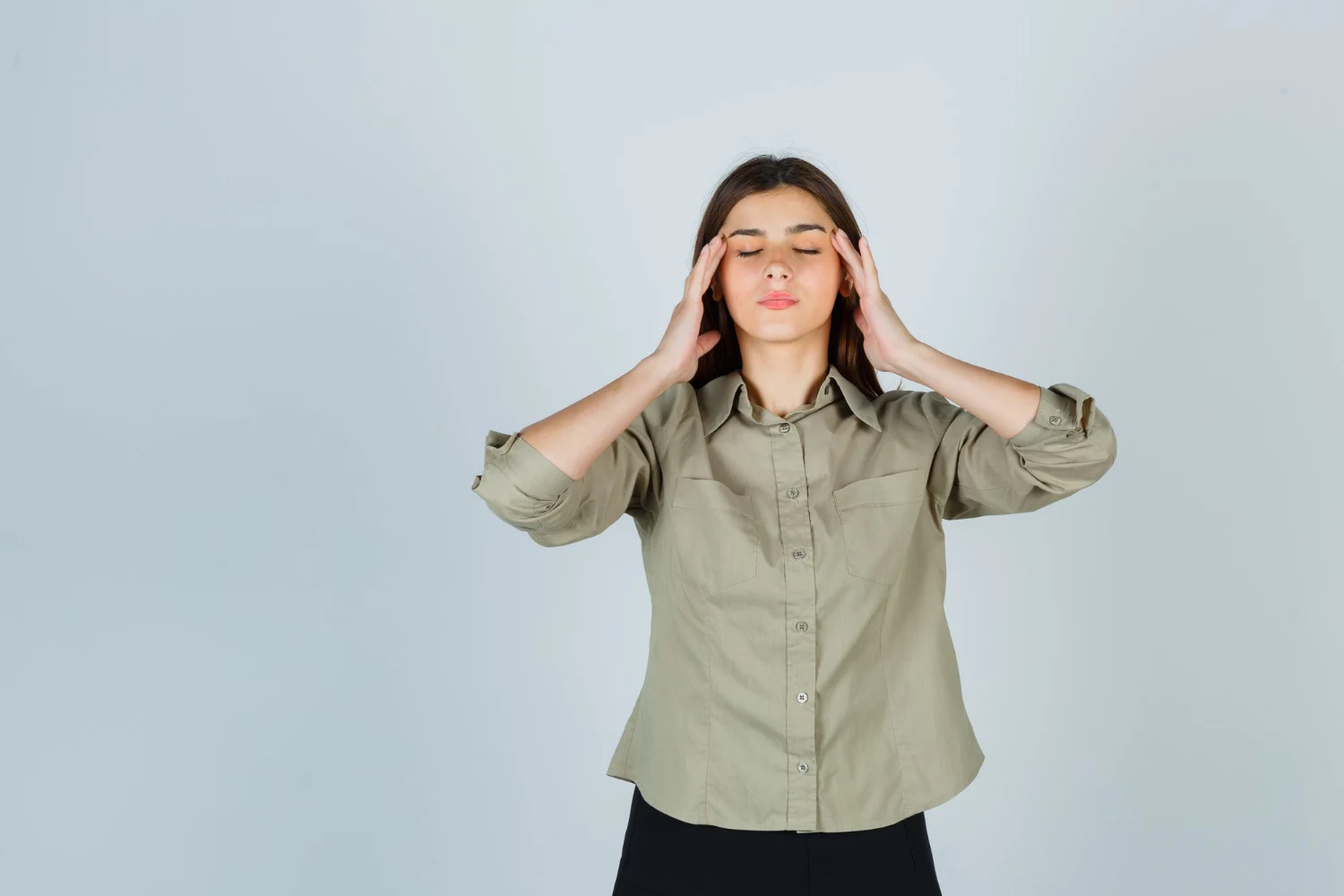How Can I Keep My Child Safe From Viral Fevers During Monsoon?
Category: General medicine
The monsoon season brings joy, greenery, and cooler weather after the harsh summer. However, it also creates the perfect environment for germs, viruses, and bacteria to thrive. Seasonal flu and viral fevers become common during this time, and children are particularly vulnerable due to their still-developing immune systems. Simple precautions, proper hygiene, and timely medical attention can go a long way in keeping your child healthy. Let’s go through a complete guide for parents to ensure their children stay safe from infections this rainy season.
1. Maintain Good Personal Hygiene
Personal hygiene is the first line of defense against seasonal infections. The flu virus spreads easily through contact touching infected surfaces, coughing, or sneezing nearby. Teach your child to wash their hands thoroughly with soap and water for at least 20 seconds, especially after playing, using the washroom, and before meals. Encourage the habit of using a tissue or their elbow when sneezing or coughing. Ensure they keep their nails short and clean to prevent dirt and germs from getting trapped. Daily baths with clean, lukewarm water are important to wash away any germs and keep the body refreshed during the humid monsoon weather.
2. Strengthen Immunity with Nutritious Food
A healthy diet is one of the best ways to protect your child from seasonal illnesses. The monsoon season is not the time for roadside snacks or raw, uncovered foods, as they can carry germs. Instead, serve freshly cooked home meals that are rich in vitamins, proteins, and minerals. Include fruits high in Vitamin C such as oranges, guava, and papaya to boost immunity. Warm soups, moong dal, khichdi, and leafy vegetables like spinach and methi are great choices. Make sure they drink boiled or filtered water, as contaminated water is a major source of infections. A well-balanced diet will strengthen your child’s defenses against flu and fever.
3. Keep Clothes and Surroundings Dry
Monsoon humidity and dampness can promote the growth of germs and mold. Wet clothes and shoes become a breeding ground for infections, so make sure your child changes out of wet clothes immediately. Keep their socks, shoes, and uniforms dry by airing them properly. At home, keep rooms well-ventilated to avoid musty smells and dampness. Wipe surfaces regularly and use mild disinfectants on floors to reduce germs. A clean, dry living space goes a long way in protecting your child’s health during the rains.
4. Avoid Stagnant Water and Mosquito Breeding
The monsoon also brings an increase in mosquito-borne illnesses like dengue, malaria, and chikungunya, which can weaken your child’s immune system and make them more prone to other infections. Ensure there is no stagnant water near your home in flower pots, discarded containers, or open tanks. Use mosquito nets at night, repellents during the day, and keep windows closed in the evening. Dress your child in full-sleeved clothes and long pants to reduce mosquito exposure. Small steps can make a big difference in preventing such illnesses.
5. Limit Exposure to Crowded Places
Crowded public places like malls, movie theatres, or large gatherings make it easier for viruses to spread. During peak monsoon months, try to avoid taking your child to such areas unless necessary. If they do go out, ensure they wear a mask, avoid touching their face, and maintain some distance from people showing symptoms of cold or fever. These simple measures reduce the risk of exposure to infections that spread quickly in crowds.
6. Monitor Symptoms and Seek Medical Advice Early
Seasonal flu and viral fevers can show symptoms like cough, cold, high temperature, headaches, and body pain. If your child develops any of these symptoms, it’s best to consult a doctor without delay. Early medical intervention can prevent complications. Avoid self-medicating your child with over-the-counter medicines. Hospitals like Lokmanya Hospitals have experienced pediatricians who can diagnose accurately and provide the right treatment to ensure quick recovery.
7. Ensure Adequate Rest and Sleep
Sleep and rest are essential for a healthy immune system. Children who are overworked, sleep late, or engage in too many outdoor activities during the monsoon are more likely to fall sick. Ensure your child gets at least 8–10 hours of sleep daily. Encourage them to take short breaks if they feel tired. Indoor activities like reading, drawing, board games, or puzzles can keep them entertained while keeping them safe from infections outside.
Conclusion
The rainy season doesn’t have to mean constant illness for your child. By following basic precautions like hygiene, a healthy diet, dry surroundings, and timely medical care, you can protect your child from seasonal flu and viral fevers. Staying alert and proactive will help ensure your child enjoys the beauty of the monsoon while staying healthy and strong.
FAQs
1. Why are children more prone to flu during monsoon?
Children have developing immune systems, which makes them more susceptible to viruses. The humid weather during monsoon also helps viruses spread more quickly.
2. Can I send my child to school if they have mild flu symptoms?
It’s better to keep them at home until they fully recover. This prevents the infection from worsening and stops it from spreading to other children.
3. What foods help in boosting a child’s immunity during monsoon?
Fresh fruits like guava, papaya, and oranges, along with home-cooked soups, dals, and leafy vegetables, are excellent for immunity building during the rainy season.
4. How often should my child wash their hands?
At least before meals, after using the toilet, after playing, and whenever they return from outside. Handwashing is one of the simplest ways to prevent infections.
5. Can flu be prevented with a vaccine?
Yes, the flu vaccine can help reduce the risk of catching certain strains of influenza. Consult your child’s doctor to know if the vaccine is recommended.
6. How do I differentiate between flu and viral fever?
Flu usually involves symptoms like cough, sore throat, and fatigue, while viral fever may cause sudden high fever and body pain. Only a doctor can confirm with proper examination.
7. Should I give antibiotics for flu?
Flu is caused by viruses, and antibiotics are effective only against bacterial infections. Giving antibiotics without a doctor’s advice can be harmful. Always consult a pediatrician.
8. What should I do if my child’s fever is not coming down?
If your child’s fever persists for more than 2 days or is very high, visit a hospital like Lokmanya Hospitals immediately for medical evaluation.
9. Can rainy weather itself cause illness?
No, rain itself doesn’t cause illness. However, the damp environment encourages germs to spread more easily, which can lead to seasonal infections.
10. How do I keep my home safe from germs during monsoon?
Clean your home regularly, keep it dry, and use disinfectants on floors and surfaces. Good ventilation helps prevent mold and bacteria growth.







